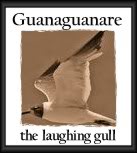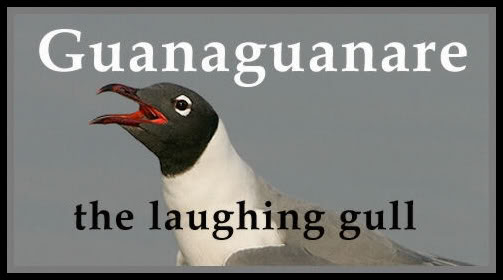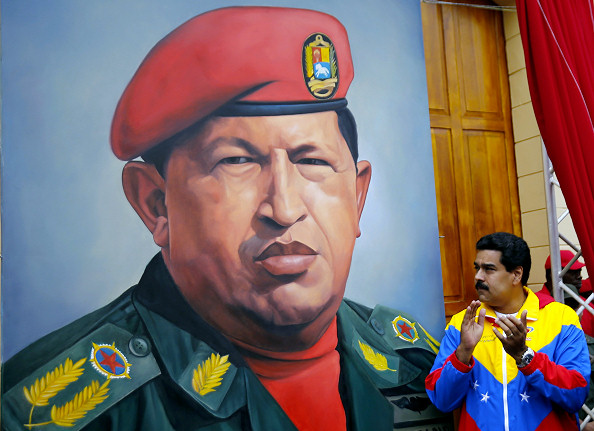Uploaded by PNMAbroad
PRESIDENT CARMONA'S INAUGURAL ADDRESS to TRINIDAD AND TOBAGO.
Hasely Crawford Stadium, Port of Spain, March 18, 2013.
Chief Justice Mr. Ivor Archie and Mrs. Archie, former President Professor George Maxwell Richards and Dr. Jean Ramjohn Richards, the honourable Timothy Hamel-Smith, President of the Senate and Mrs. Hamel-Smith, the honourable Speaker of the house, Mr. Wade Mark and Mrs. Mark, honourable ministers of government and Chief Secretary of the Tobago House of Assembly, members of the diplomatic corp, other members of parliament, heads of religions organisations, members of the judiciary, members of the media, distinguished ladies and gentlemen, great children of Trinidad and Tobago, good day and good afternoon to you all.
I wish to express my gratitude to former President Richards for his services to the Republic, for his cooperation during the transition period, and particularly for his generous hosting of this ceremony.
I am humbled by the abundance of goodwill that I have received; but I am ever mindful that goodwill can be nebulous and can dissipate if expectations are not realised or not realised expeditiously.
I have listened quietly, but with some pause, to the well-intentioned national discussions on the role and responsibilities of the President of the Republic.
My dear citizens, it would be otiose on the occasion, to attempt to engage you in a discussion on Constitutional Law. I do want to emphasise, however, that I am not an Executive President. Under the Westminster form of governance, there are parameters within which I must operate. Powers you think I have, I do not. Powers you think I do not have, I do.
I may not have a magic wand, but the Office of the Presidency is not impotent. I do have constitutional clout. Inter alia Section 81 of the Constitution mandates the Prime Minister to keep the President fully informed of the general conduct of the Government and, at the President’s request, to submit information with respect to any matter relating thereto. It is a dialogue mechanism that will be invoked affirmatively for the good of the Republic.
As a judge, I swore to uphold the Constitution and the Law and do right to all manner of people without fear or favour, affection or ill will. This I have done unflinchingly.
As President of the Republic of Trinidad and Tobago my remit is wider and greater, for I have sworn to preserve the Constitution and the Law and to devote myself to the service and well-being of the people of Trinidad and Tobago. This I shall do without compromise or reservation, holding fast to the following fundamentals: integrity, transparency, inclusiveness, accountability and reverence to God Almighty.
Children, distinguished ladies and gentlemen, the Preamble to our Constitution includes two critical principles that continue to inform our existence as an independent nation. First, that there is a higher authority that we are all enjoined to acknowledge, and, second, that our humanity confers on us all certain rights and freedoms but, at the same time, imposes on us all corresponding responsibilities. The fact that we may hold these ideas to be inviolate, however, does not deny the need for Constitutional reform, the need to revisit the principles and precedents by which we are currently governed, to unravel the sense of disconnect that the average person has to issue of governance.
One principal mandate of my Presidency will be to infuse new life into the watchwords - Discipline, Production, Tolerance.
We have become a highly indisciplined society. Fulfilling the objective of the watchword, Discipline entails a wider acceptance of personal responsibility for one’s actions, a willingness to be held accountable.
Let me make it clear that being responsible and accountable does not only apply to people in high places, to Ministers of Government and other elected officials. Our leaders are all those persons who command positions of influence in our society. Whatever their sphere of influence, it is the right and duty of you the citizenry to demand that, as leaders, they are responsible and accountable in the exercise of their functions. Yet, one cannot justly demand that those in authority be disciplined, responsible, accountable and not invoke the same standards of conduct in our daily lives.
Being responsible and accountable is a two-way street. It is a duty that our citizenship imposes on us all regardless of our social, ethnic or economic status.
Václav Havel, the Ninth and last President of Czechoslovakia and the First President of the Czech Republic, in his 1990 New Year’s Address to the Nation, pointed to his countrymen’s shared responsibility for their past and future in these words, and I quote:
"Let us not be mistaken: the best government in the world, the best parliament and the best president, cannot achieve much on their own. And it would be wrong to expect a general remedy from them alone. Freedom and democracy include participation and therefore responsibility from us all."
The second watchword, Production, is a call for us to re-examine our work ethic; to demand a fair day’s pay but, at the same time, to commit to giving a fair day’s work; to search out lawful opportunities to be less dependent on the State; to distinguish between service and servitude; and to ensure that in any and all areas of endeavour, the goods and services that we offer are second to none.
Finally, there is the third watchword, Tolerance.
Tolerance is properly defined according to Joshua Liebman as "the positive and cordial effort to understand anothers beliefs, practices, and habits without necessarily sharing or accepting them." As such, it is allied to the practice of empathy, compassion and respect for others - all qualities that are needed if we hope to establish the more humane civil society that our small multi-ethnic, multi-religious, multi-cultural population seems gifted to achieve by virtue of its proven creativity, wide-ranging and varied talents, and overarching intellectual energy.
As we celebrate our 50th Anniversary as a nation, we are faced with two opposing value systems, each striving to emerge as the dominant culture. The first speaks to a spirit of collaboration and community exemplified in the fellowship of religious institutions; in the unity and camaraderie of the steelband; in the supportive organisation of the conservative sou-sou; in the healing influence of the panchayat; in the socially-nurturing role enacted by many business and professional bodies, and in the benevolence of our richly varied world of NGOs and organisations of civil society.
In sharp contrast, and posing a growing threat to the first, is a value system based on rampant individualism - a value system characterised by a spirit of intimidation and lawlessness, one that finds expressing acts of violence, brutality and the exploitation of the disadvantaged and the voiceless. Regrettably, for many of us, tolerance has become synonymous with indifference; and these reckless, lawless, dysfunctional patterns of behaviour are treated as examples of Trini culture that we condemn in private but accept as par for the course.
My dear children, my fellow citizens, we cannot and must not be indifferent to the ravages of social injustice and marginalisation. As the United Nations document, "Social Justice in an Open World", published in 2006, bluntly reminds us: "Neglect of the pursuit of social justice in all its dimensions translates into de facto acceptance of a future marred by violence, repression and chaos."
Today our jails house a disproportionate percentage of young males from depressed communities and we need, as a society, to devise ways and means of addressing this dilemma. The family remains the bedrock, the bedrock of this solution. In his 1995 edition of the "Moral Compass", William Bennett reminded us of the role the family is called upon to play in the moral development of the young person and I quote:
"All children need bread and shelter. But a true home, of course, is more and that. Children also need love and order and because they are not born knowing the difference between right and wrong, home is a place where they can begin to develop a moral sense.
The observation of Aristotle, the philosopher, is pertinent, he stated that it is, and I quote: "It is the peculiarity of man, in comparison with the rest of the animal world, that he alone possesses a perception of good and evil, of the just and the unjust, and of other qualities, and it is the association in these things which makes a family."
The observation of Aristotle, the philosopher, is pertinent, he stated that it is, and I quote: "It is the peculiarity of man, in comparison with the rest of the animal world, that he alone possesses a perception of good and evil, of the just and the unjust, and of other qualities, and it is the association in these things which makes a family."
In the criminal justice system there is so much pain and anguish. For too many years, young men from our depressed communities are being murdered. The man child is in crisis; and we cannot and must not trivialise the sanctity of human life by indifferently dismissing the deaths of these young persons as gang-related. We adopt the offensive philosophical position that they will eventually all be killed, not recognising that each man's death diminishes me and every murder is revenged, and revenge is a relay race that will never end unless there is genuine out of the box intervention.
We, as a nation, we, the Parliament of the people, must no longer engage in tired politics on this issue. Waffle abounds. What is needed is a truly collaborative effort among the stakeholders to address the crisis that is crime.
I say this because I know that with the appropriate support, these young men, these young persons are fully capable of acting in a responsible manner, fully capable of being accountable. Let me give you three examples.
First, there is the highly successful Bail Boys Project which was initiated in the San Fernando Court. The project, which involves family members, aims at preventing recidivism among young criminals between the ages of 15 and 25. It includes curfew restrictions, sessions in anger management and self-esteem by trained psychologists, re-education and literacy training as bail conditions. On completion of the programme, employment is made available through collaboration with various companies and institutions. It has reached the point that in the last four years we have a moved a criminal to being a first year student at the University of Trinidad and Tobago studying engineering.
Secondly, The Drug Treatment Court, instituted in San Fernando under the wise leadership of Chief Justice Archie, is another major form of restorative intervention that promises to benefit the society at large. Like the Bail Boys Project, it demonstrates the value of thinking outside the box. We cannot and must not only engage in this philosophy of containment.
My third example is drawn from the primary school - Rose Hill RC school in Laventille, which is part of the East Port of Spain Mentoring Project. Under the leadership of Father Clyde Harvey, a giant among us, mentors from the wider society outside of Laventille join with members of the community to help those most at risk to meet successfully the challenges that they encounter on a daily basis.
We can look to Rose Hill RC, to provide the quality of personal and communal leadership we so urgently need today by referencing, I repeat, by referencing the school motto:
"DO THE RIGHT THING BECAUSE IT IS THE RIGHT THING TO DO."
In other words, the students of Rose Hill RC are constantly being reminded of something that we in the wider society are forgetting or are oblivious to: That as important as it is for us to acquire knowledge and the technical skills needed to compete successfully in a global economy, economic growth and material well-being are not the only criteria by which we are judged here or on the world stage.
Honour and integrity do matter!
My dear children, my fellow citizens, The Republic of Trinidad and Tobago is a crown sitting on the head of the Americas, but our sphere of influence has not been fully recognised or developed. Yet the unique role that this small republic can play was pointed out to us in no ambiguous manner by that towering world figure, Pope John Paul II, when he visited our shores in February 1985. In his papal exhortation to thousands of citizens in this very stadium he said:
“I want to tell you of my admiration for your nation, whose people of different races, religions and traditions, live side by side. This mutual understanding of one another is spiritually enriching and fulfilling. In a world riddled with religious bigotry and fratricidal conflicts, you are a sign of hope."
I believe that as a nation we need to rediscover our destiny of creating hope for a world in turmoil.
The International Criminal Court established through the Nelson Mandela of the international criminal justice system, namely President Arthur Robinson SC, is a perfect example of us creating hope for the world at large for those who have suffered the ravages of impunity and we as a Republic can still do more
Pursuing this goal, however, would require us to make certain changes.
For many, many years the ship called the Republic of Trinidad and Tobago has left its safe moorings of integrity, accountability, responsibility, transparency and inclusiveness. We are good at sound bites and labeling. We can be excellent wordsmiths. The cynics, they howl in the wilderness. But if we are to establish a better, more progressive, more humane society, real change must be invoked.
No one has ever suggested that change is easy. Indeed, even the most sought-after changes are generally attended by doubts and fears. And this is particularly true when the change envisioned threatens our sense of who we are as individuals or as members of a distinct group; when that change exposes strongly-held biases and prejudices as myths, myths that constrain our capacity for empathy, promoting instead narrow group loyalties, that serve only to deny us the magic of community, to steal from us the courage and the wisdom that are the principal building blocks of this small and complex nation we call Trinidad and Tobago.
I consider myself fortunate to have been raised by no less than five villages! Let me hasten to add, this was not because I was a difficult child but the circumstances that occasioned these frequent changes of residence did broaden my sense of community and expand the body of exemplars whose influence has been so crucial in determining the direction of life.
I thank my parents, Dennis and Barbara Carmona, my siblings, my wife Reema, my son Christian and my daughter Anura, my dear friends, teachers and mentors for all the support accorded me throughout my long and varied career; and I particularly want to recognise the debt of gratitude that I owe to Sobo, Palo Seco; Bennett Village, Los Bajos; Jacob Settlement, Santa Flora; Dally Village and Fyzabad. The love and encouragement that you so generously offered me along the way have played a large part in defining who I am today.
In closing, I would also like to thank all of you present here this afternoon. A special thanks to my brothers and sisters in the judiciary who have helped and assisted me on my journey to where I am today. As I embark on this new journey, I ask you for your continuing support and prayers that I may discharge my responsibilities with integrity and sensitivity, that my term in office may coincide with a growing sense of our shared humanity; and that, in all things, I may prove myself to be deserving of the rich honour that you have so graciously bestowed on me today.
Notwithstanding our dynamic diversity, notwithstanding that we are the result of two islands, we have each others back because we are one.
May God bless you all and may God bless our nation of Trinidad and Tobago.
I thank you very much.
..............................................................................................................................
A Note From The Gull
Thank you very much, President Anthony Carmona for these comforting and rallying words. I wish you well and I am daring to be very hopeful for my country. Tempus ostendet.
"Patria est communis omnium parens" - Our native land is the common parent of us all. Keep it beautiful, make it even more so.
Blessed is all of creation
Blessed be my beautiful people
Blessed be the day of our awakening
Blessed is my country
Blessed are her patient hills.
Mweh ka allay!
Guanaguanare

















Hugo Chávez Frías: An Unforgettable and Victorious Permanence